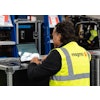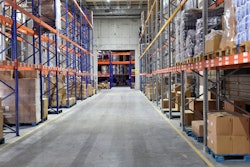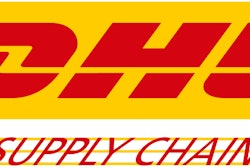
Unilever scored the top spot on Gartner's annual Supply Chain Top 25, a list identifying supply chain leaders and highlighting their best practices, for the third year in a row.
"Unilever has a strong supply chain brand, which is reflected by its top-tier opinion poll score. It also received a perfect 10 for corporate social responsibility (CSR)," says Stan Aronow, research vice president at Gartner. "The Dutch consumer products leader is making big bets in the digitization of its supply chain. A key initiative is robotic process automation (RPA) supporting the order-to-cash process, run from its regional service control towers. Its more than 20 'bots' have already automated hundreds of processes, with a roadmap for hundreds more."
Following Unilever at the top spot was Inditex, Cisco, Colgate-Palmolive and Intel. Home Depot rejoined the ranking after a three-year hiatus, while Novo Nordisk and Adidas joined the Supply Chain Top 25 for the first time. View the complete list here.
"The ranking consists of an impressive group of leaders with valuable lessons to share, including three recent entrants from the life sciences, retail and consumer products sectors," says Aronow. "Looking back at 2017, we experienced a year of healthy growth, despite heated trade rhetoric. Now, in 2018, protectionism is spreading in response to announced moves by the U.S. and the U.K., among others. This has led many organizations to re-evaluate the location strategy for their supply networks. We also see strong growth constraining available supply in many geographies, increasing the cost of logistics and labor. The most advanced supply chains are proactively managing these risks and continue to post solid performances."
In addition to the Top 25, longtime supply chain leader and last year's runner-up McDonald's joined Apple, P&G and Amazon in qualifying for the "Masters" category, which Gartner introduced in 2015 to recognize sustained leadership over the last 10 years.
"The key to McDonald's success is skillful orchestration across a network of strategic suppliers, service providers and thousands of companies and franchise-owned stores worldwide," says Aronow. "The company is also experimenting with digital supply chain capabilities like augmented reality to manage storerooms, so staff can spend more time with the customer.
The Supply Chain Top 25 also offers a platform for insights, learning, debate and contributions to the rising influence of supply chain practices on the global economy. Three key trends stand out this year for supply chain leaders that are accelerating their capabilities, separating them further from the rest of the pack.
Focus on Customer Experience
Gartner defines the customer experience (CX) as the customer's perceptions and related feelings caused by the one-off and cumulative effect of interactions with a supplier's employees, channels, systems and products. Companies recognize that their customers are heavily influenced by their supply chain experience—a late delivery disappoints, an expedited delivery delights.
"Many leading supply chains are using digital connections with customers to better understand their use of products, predict future demand and more quickly respond to issues, even before they appear," notes Aronow.
Scaling Digital Supply Chain Capabilities
After a first round of experiments, leading companies are scaling the most viable digital supply chain solutions in factories, warehouses and corporate back offices. While automation is most common in manufacturing and logistics, there has also been an explosion in digital customer service. This includes RPA in the order-to-cash cycle and the use of trained artificial intelligence (AI) customer service chatbots that customers may mistake for a human, due to their use of natural language.
Moving to Circular Supply Chain Designs
Leading companies have changed their mindset when it comes to environmental sustainability. Advanced supply chains now take a life cycle-based approach to understand the total impact of products and operations across the value chain.
"There are many reasons why companies are pursuing these so-called 'circular economy' strategies," says Aronow. "We often see an altruistic desire to do what's best for the environment and society, combined with a commercial desire for continued differentiation in competitive markets. As a result, some companies are now recycling and repurposing old parts in new products and extending the life cycle of existing equipment, as part of broader circular business strategies."
















